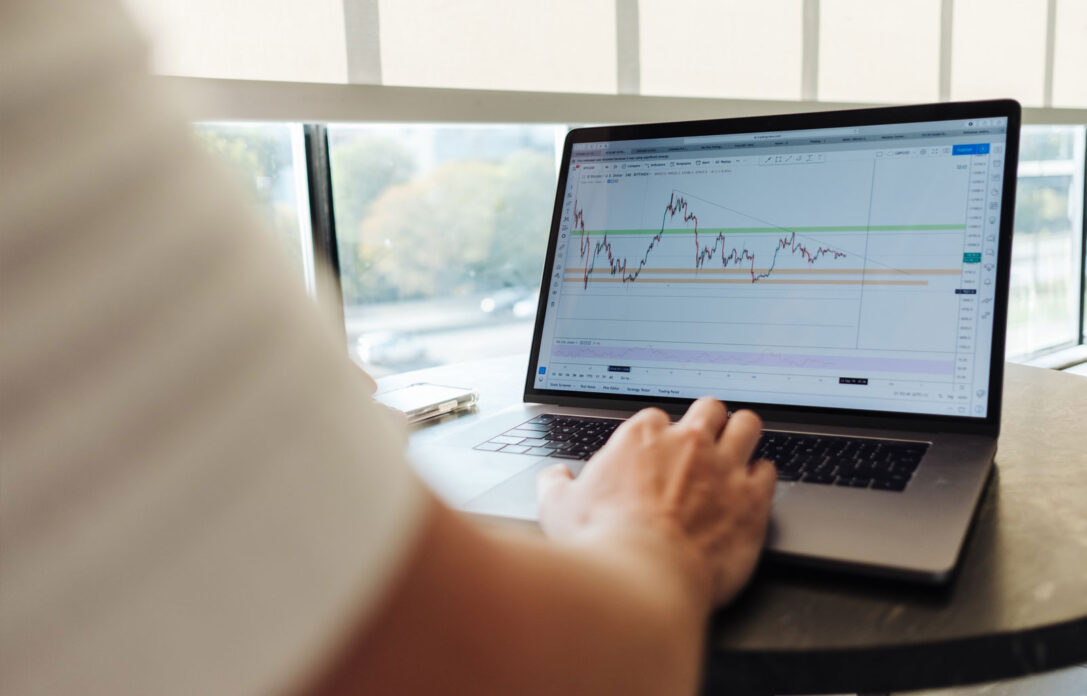Crypto Trading Tools: A Beginner’s Guide to Building a Strong Foundation
Cryptocurrency trading has emerged as a dynamic and potentially lucrative endeavor for individuals seeking to venture into the world of digital assets. As the global financial landscape evolves, more and more people are turning to crypto trading as a means of diversifying their investment portfolios and capitalizing on the unique opportunities presented by this digital frontier. However, to navigate this complex market successfully, beginners must establish a strong foundation built upon the right tools and knowledge.
The Importance of Using the Right Tools

Embarking on a journey into the realm of crypto trading requires more than just a passing interest; it demands a comprehensive understanding of the market’s intricacies and a strategic approach. To build a solid foundation, one must harness the power of the right tools and resources. These tools not only facilitate informed decision-making but also mitigate risks, enhance trading efficiency, and provide valuable insights into the market’s behavior.
Understanding the Crypto Market Landscape
Before diving into the specifics of trading tools, it’s essential for beginners to grasp the fundamentals of the cryptocurrency market. Unlike traditional financial markets, the crypto market operates 24/7, allowing for constant trading activity across various time zones. Exchanges serve as the epicenter of this market, acting as platforms where traders can buy, sell, and exchange various cryptocurrencies. Understanding the concept of trading pairs is crucial; these pairs represent the relative value of one cryptocurrency in terms of another.
Choosing a Secure Crypto Exchange

Selecting the right cryptocurrency exchange is paramount for any aspiring trader. A secure and reliable exchange ensures the safety of your funds and personal information. When choosing an exchange, factors such as user interface, security measures, trading fees, and the range of available cryptocurrencies should be carefully considered. It’s advisable to opt for well-established exchanges with a solid reputation in the industry.
Exploring Crypto Wallet Options
While exchanges provide a platform for trading, cryptocurrency wallets are essential for storing your digital assets securely. There are various types of wallets, each with its own level of security and accessibility. Hardware wallets offer an offline storage solution, while software wallets provide greater convenience for frequent trading. Mobile wallets, on the other hand, offer a blend of accessibility and security.
Basic Charting and Technical Analysis
To make informed trading decisions, beginners must understand the basics of charting and technical analysis. Price charts visually represent the historical price movement of a cryptocurrency, allowing traders to identify trends and patterns. Technical analysis involves using indicators, such as moving averages and relative strength index (RSI), to predict future price movements. Learning these concepts empowers traders to spot potential opportunities and make informed entry and exit decisions. With crypto’s volatility, making the right decision at the right time is essential for success. This is why you need professional help and in this department you can find help at https://immediate-edge.live/.
Fundamental Analysis for Cryptocurrencies

In addition to technical analysis, fundamental analysis plays a pivotal role in evaluating the potential of cryptocurrencies. This involves researching and assessing factors such as the technology behind the coin, the development team’s credentials, real-world adoption, and the practical use cases of the cryptocurrency. A well-rounded understanding of both technical and fundamental analysis enables traders to make comprehensive decisions.
Risk Management Principles
Successful trading is not solely about making profits; it’s also about managing risks effectively. Implementing risk management strategies is essential to safeguard your capital. Position sizing, setting stop-loss orders, and diversification are fundamental principles that help mitigate potential losses. By adhering to these strategies, traders can minimize the impact of unfavorable market movements.
Keeping Up with Crypto News
The cryptocurrency market is influenced by news and events from around the world. Staying informed about developments, regulatory changes, and technological advancements is crucial for making timely and well-informed trading decisions. Reliable sources such as reputable news websites, industry blogs, and official social media channels provide valuable insights into the market’s pulse.
Leveraging Trading Tools and Platforms

As technology continues to evolve, trading platforms and tools designed for beginners have become more accessible and user-friendly. These tools provide features like price alerts, real-time market data, and user-friendly interfaces that simplify the trading process. By leveraging these resources, beginners can execute trades more efficiently and confidently.
Emotion Management and Discipline
The psychological aspect of trading cannot be overlooked. Emotions like fear and greed can cloud judgment and lead to impulsive decisions. Establishing emotional discipline is crucial for maintaining a rational approach to trading. Techniques such as setting trading goals, managing stress, and practicing patience contribute to maintaining a balanced and focused mindset.
Developing a Trading Strategy
A well-defined trading strategy serves as a roadmap for traders. It outlines entry and exit points, risk tolerance, and timeframes. Creating a strategy tailored to your risk appetite and trading style enhances consistency and minimizes impulsiveness. Setting realistic goals and adhering to your strategy is key to long-term success.
Paper Trading and Simulation

For beginners, practicing trading strategies without risking real funds is a valuable exercise. Paper trading involves using simulated funds to execute trades based on real market conditions. This allows traders to test their strategies, gain experience, and refine their approach without incurring actual losses.
Learning Resources and Communities
The journey of becoming a proficient crypto trader is ongoing. Educational resources, online courses, and trading communities offer valuable opportunities for learning and networking. Engaging with fellow traders, sharing insights, and participating in discussions contribute to continuous improvement and staying updated with the latest trends.
Conclusion
Building a strong foundation in the world of crypto trading requires dedication, continuous learning, and the right tools. By understanding the market landscape, choosing secure exchanges, mastering analysis techniques, and managing emotions, beginners can embark on a rewarding journey. As the cryptocurrency market continues to evolve, those armed with knowledge and a disciplined approach will be well-equipped to navigate its dynamic twists and turns. By adhering to the principles outlined in this guide, beginners can set themselves on the path to becoming confident and successful crypto traders.



